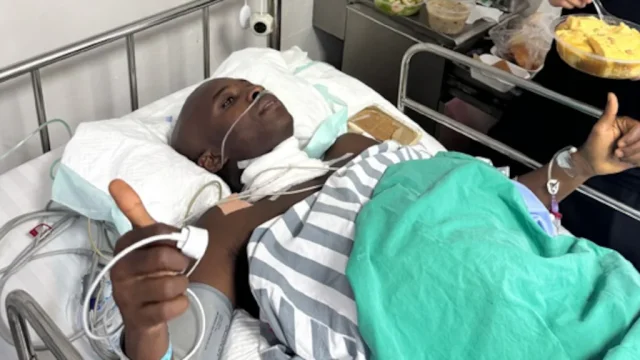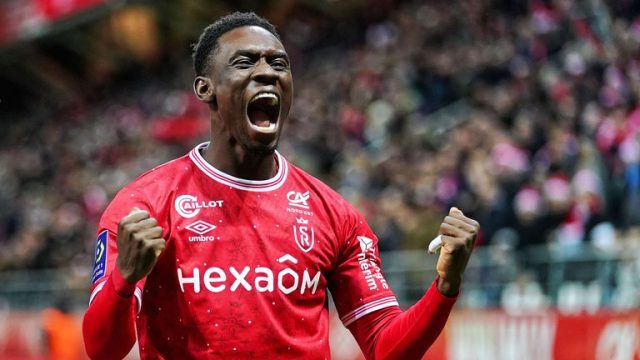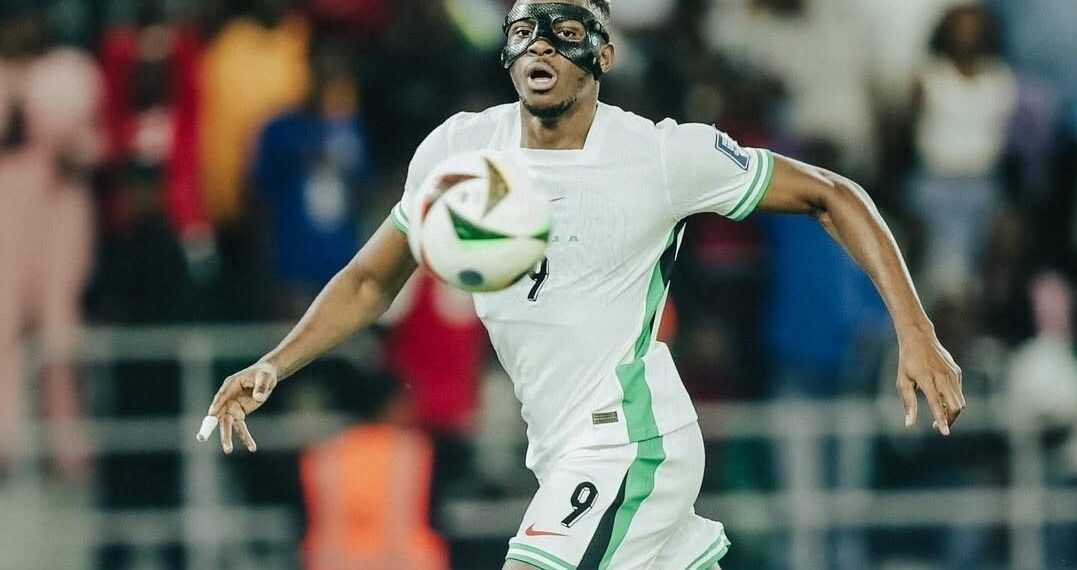In a moment that has sparked concern across the African football community and beyond, Samuel Asamoah, the Togolese midfielder known for his dynamic play, suffered a life-altering injury during a Chinese League One match. The incident, which was captured on video and widely circulated on social media, has provoked serious questions about player safety and international standards—issues that resonate deeply among Nigerian, West African, and global fans who keenly follow the journeys of African players abroad.
Nigerian and West African Fans React to Shocking Injury
Football is more than just a sport across Nigeria and West Africa. From local viewing centres to bustling markets, fans passionately support African players excelling on the global stage. When news broke of Samuel Asamoah’s injury, outpourings of support and debate erupted in communities from Lagos to Lomé.
“Whenever we hear of our African brothers going through such tough times abroad, it hits home for us,” said Ebuka Onuoha, a football analyst based in Lagos. “Samuel Asamoah’s case is exceptionally sad, and we are praying for his recovery.”
The Incident: What Happened on the Pitch
On Sunday, Asamoah’s team, Guangxi Pingguo, was battling for points in China’s fiercely competitive League One. In the crucial stages of the match, 31-year-old Asamoah was reportedly shoved by an opposing player while contesting the ball—an all-too-common clash on the pitch. However, unlike most challenges, this one ended in tragedy: Asamoah plunged head-first into an LED advertising board positioned alongside the field.
According to his club, the impact left Asamoah with fractured neck vertebrae and significant nerve damage. Medical staff responded swiftly, and the midfielder was rushed to hospital, where he underwent urgent surgery in a bid to save his mobility.
Concerns Over Player Safety and Infrastructure Standards
The proximity of advertising panels and pitch-side barriers has often ignited debate among fans and sports professionals, especially across Africa where stadium facilities constantly face scrutiny. While Chinese football authorities maintain that the advertising display was positioned three metres from the playing surface, in line with international football standards, some analysts insist more needs to be done. “Having standard distances is one thing, but enforcing them and ensuring the safety of players in real time is another,” notes sports lawyer Chidera Umeh.
This is not the first time African athletes have suffered severe injuries abroad due to infrastructural shortcomings or overly aggressive play. In 2018, Nigerian defender Kingsley Madu narrowly escaped a similar incident while playing in Slovakia, sparking a continental discussion about the risks facing exported talent.
Medical Updates and Implications for Asamoah’s Career
Guangxi Pingguo confirmed on Monday that Asamoah faces a long road to recovery. According to club statements, doctors fear he may suffer long-term paralysis, as he remains at risk of high-level paraplegia. “He will miss the remainder of the season, and unfortunately, his career may be seriously affected,” the club announced.
A subsequent update on Wednesday brought a measure of relief, with the club reporting that Asamoah was in stable condition following surgery. “Guangxi Pingguo FC sincerely thanks all fans and all walks of life for their concern and support for Samuel Asamoah,” a spokesperson said, adding that his progress will be closely monitored and further information released as available.
While Asamoah’s recovery timeline remains uncertain, stories like his highlight the fine margins in professional sport, particularly for African footballers seeking new opportunities abroad.
Samuel Asamoah: Football Journey from West Africa to the World
Samuel Asamoah’s name resonates with fans in both Togo and Nigeria, many of whom have followed his steady ascent through European football. Starting his career in Belgium, Asamoah became known for his work rate and technical skill, attributes that eventually earned him a move to the increasingly popular Chinese football scene in 2023.
According to data compiled by Transfermarkt, he has represented Togo’s senior national team six times, further cementing his status as a West African football ambassador.
With the growth of African talents in global leagues—ranging from Osimhen in Italy to Partey in England—Asamoah’s journey embodies the dream of many young players in Nigeria and the subregion: to use football as a passport to opportunity, while representing their heritage abroad.
Local Experts and Coaches Weigh In
- Player Safety: “Greater monitoring is necessary—both on player conduct and stadium setups. African and Asian leagues must learn from each other and share best practices,” stated John Ameh, a coach with the Nigerian Football Federation.
- Mental Health and Support: Dr. Florence Adeyemi, a Lagos-based sports psychologist, stressed the need for counseling and community support, highlighting the ripple effect of such injuries on players’ mental health back home.
- Infrastructure Lessons: “African stadiums are also evolving. We need to ensure our own grounds are safe for local and international players alike,” said Solomon Owusu, a Ghanaian football ground manager.
Global and Local Responses: The Broader Picture
Internationally, Asamoah’s case has drawn statements from global player unions and West African media, calling for a renewed focus on player welfare and league governance. The Professional Footballers’ Association of Ghana released a message of solidarity, while fans and pundits across Nigeria have taken to social media under hashtags like #PrayForAsamoah, stressing the importance of better medical protocols and injury prevention measures.
Experts also point out that such high-profile injury cases can be catalysts for reform. Countries like Nigeria, which produce hundreds of football talents every year, must remain vigilant about the welfare of their export stars and invest in ensuring local stadium facilities meet global safety benchmarks. This includes regular independent safety audits and upgrading barrier-free zones in line with evolving FIFA regulations.
Comparing International Approaches and Nigerian Lessons
While China emphasizes adherence to international standards for pitch-side setups, enforcement varies globally. In Europe, several stadiums now use energy-absorbing barriers and conduct periodic safety drills involving players and referees. Nigerian sports authorities are increasingly adopting such methods, especially ahead of hosting major continental tournaments.
This incident prompts critical questions: Are current measures enough to safeguard players—especially visiting internationals—from permanent harm? And what further steps should be adopted within Nigeria and across Africa to ensure every footballer, whether homegrown or imported, enjoys the best possible protections?
What’s Next for Samuel Asamoah and African Football?
As messages of hope and support pour in for Samuel Asamoah, many in the Nigerian and African football fraternity are calling for concrete action. Beyond thoughts and prayers, they want to see increased investment in player welfare, safety innovation, and better cross-border collaboration among football leagues. For Asamoah, the immediate focus is on rehabilitation and regaining his quality of life, but his case serves as a rallying point for broader improvements that could benefit generations of players.
How do you think African football federations and clubs should improve player safety both locally and abroad? What lessons can be drawn from Samuel Asamoah’s experience? Share your opinions below, and don’t forget to follow us for ongoing updates on this story and other big sports headlines from across Africa.
Want to share your story or have insights on this topic? We’d love to hear from you! Send your news tips, personal stories, or opinions to story@nowahalazone.com to get your perspective featured or discuss story sales. For general support, reach us at support@nowahalazone.com.
Connect with a vibrant sports community—follow us on Facebook, X (Twitter), and Instagram for instant updates, live discussions, and exclusive insights!










